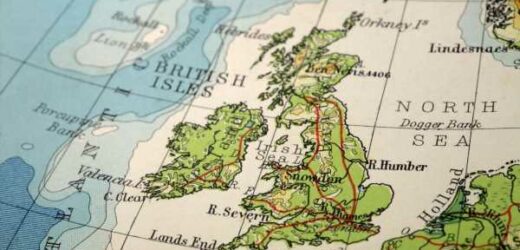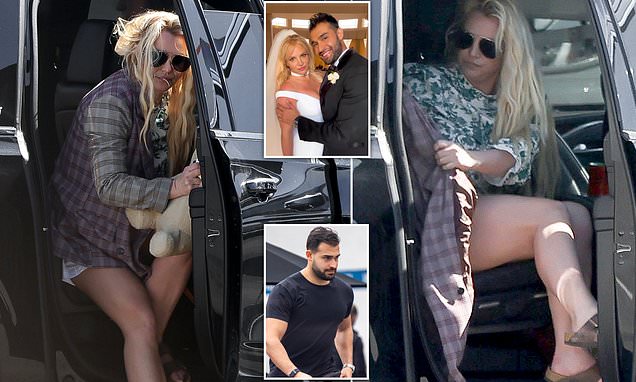
Katie Owen, who grew up in Merthyr and Pontyclun, in South Wales, said she was working at a London red carpet event in January this year when she overheard two women saying they wouldn’t do an interview with her because they “hate Welsh people” and didn’t want to hear her “jarring” accent. Katie told ITV Wales at the time that she was left “shocked and speechless” by the incident, and was “trying not to cry” as she heard the women go on to do impressions of her. But when her tweet was inundated with comments by people who recalled their own experiences of accent bias and discrimination, she felt less alone.
The 25-year-old presenter also told ITV Wales that she has “loads of friends in London from Wales and they’ve all had an experience like that in a professional environment”.
She added that although she personally hadn’t experienced anything as upsetting before, she did sometimes feel “people don’t take you as seriously” if you have a strong accent.
Maia Beth, a 22-year-old Radio One DJ from Washington, a town just outside Sunderland in North East England, can relate.
Now living in South East London, Maia told Express.co.uk her accent wasn’t something she thought much about until she moved from home. When she started her new life in the capital, Maia was “determined not to fall into the stereotypes associated with a North East accent”.
These “very real” stereotypes made her a little apprehensive before starting her job at Radio One. She said: “One of the main ones is that you’re stupid, and that’s something I’ve always been a bit nervous about, especially because I didn’t go to university.”
Maia admitted to also being warned by teachers at school that she’d have to “tone down” her accent in order to establish her career.
“I was told that I ‘talk funny’, and one man even sat me down after an exam and told me I was never going to make it as a radio presenter,” she said.
“I remember going to the toilets after and crying, but stuff like that genuinely gave me the strength to prove them wrong. Telling me I wasn’t good enough pushed me to work harder.”
DON’T MISS:
Salad leaves can be kept ‘crisp’ for longer with kitchen roll tip [FOOD STORAGE]
I tried the Chicken Big Mac and it was a lot tastier than expected [TASTE TEST]
Prevent ‘biggest’ cause of ageing to keep skin ‘radiant and youthful’ [SKINCARE]
Maia wasn’t surprised to hear Katie’s experience because “there’s such a lack of different voices in the media” and “TV shows and films about regions, such as the North East, are usually filled with crime, poverty and stereotypes”.
But she believes things are gradually improving. “At Radio One, for example, there’s such a wide range of accents and it’s genuinely so refreshing,” she said.
“I sometimes get messages from random Geordies or Mackems saying how much it made them smile hearing someone like them.”
Maia added: “I’ll say something like ‘aw haway man’ on air without even thinking and get texts from someone in the North East absolutely buzzing to hear a voice similar to their own.
“The fact people take the time to text shows how rare and how important these little things are. That makes me so happy and proud of myself, just for being me.”

Bella, 30, from Chester is proud of her northern accent too, but she thinks more work needs to be done to champion regional accents in British TV and media.
“I think a lot of TV and films perpetuate the stereotype that if you have a northern accent you’re common, stupid, naive, and so on,” she said.
Bella herself has experienced accent bias as she recalled “some guy at a party” asking her “why do you speak like that?”.
“I said ‘like what’, and he said ‘like you’re stupid’,” she recalled. “I think he had definitely heard an accent like mine before but said it to imply northerners are thick compared to southerners.”
Midlanders are also stereotyped, Rob, 27, told Express.co.uk. Hailing from Birmingham, Rob said he constantly hears people say his accent is the worst in the country, “which is more annoying than anything”.
“In certain settings, you do feel like you have to tone down your regional accent, for example in business meetings or certain networking environments,” he said.
Although BBC series Peaky Blinders and footballer Jack Grealish “have done wonders for our accent”, Rob added: “You rarely hear Brummies on TV – there is still a tendency for neutral or southern accents to prevail”.

Mok, also known as The Gay Aristo, is a historian originally from London. The son of Irish immigrants “who both had strong accents”, he told Express.co.uk that British people are stereotyped if they have a “posh” accent too.
Bullied at his local state school for being gay and having “a high-pitched voice”, Mok eventually received private education after his father did everything he could to afford it, including cashing in his pension. This is where his accent started to change.
“I was mixing with people from much more middle-class backgrounds,” he said. “This was not intentional on my part – children are incredibly adaptable.”
Mok claimed that “people make assumptions about my background because of my accent”. He continued: “They think I will vote a certain way, that I have never struggled for money, that I have no idea of what ‘real life’ is like. That is so far from the truth. I come from an immigrant family, who were not rich, and I spent a great deal of my early life living in bedsits and living hand to mouth.”
Mok added that he thinks “there are much more regional accents in the media now and, as a gay man, I welcome the diversity of talent that is being showcased”.
The 53-year-old, who now calls South Wales home, stressed nobody should be judged by the way they speak. “We should celebrate individuality and not use the way anyone speaks, to make them feel less valid than others,” he said.
Source: Read Full Article


